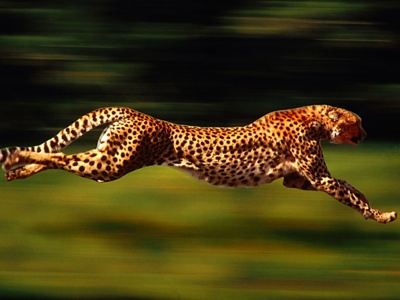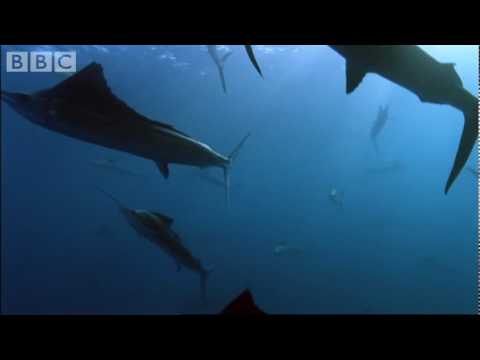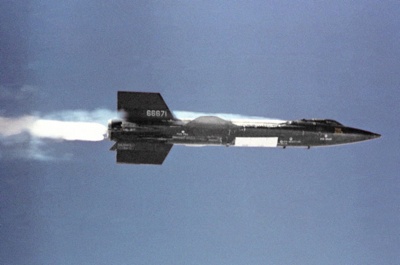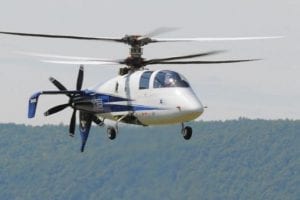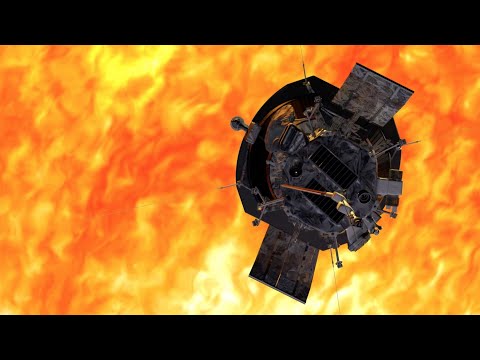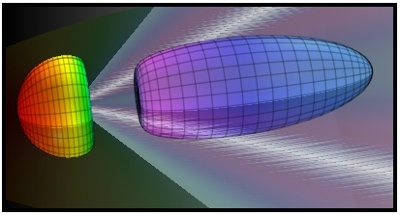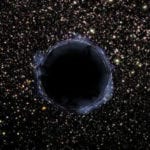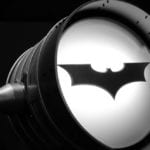Usain St. Leo Bolt C.D (born 21 August 1986) is a Jamaican sprinter. Bolt holds the Olympic and world records for the 100 meters at 9.69 seconds, the 200 meters at 19.30 seconds, and, along with his teammates, the 4×100 meters relay at 37.10 seconds, all set at the 2008 Summer Olympics. Bolt became the first man to win all three events at a single Olympics since Carl Lewis in 1984 and the first man in history to set world records in all three at a single Olympics. His name and achievements in sprinting have earned him the media nickname “Lightning Bolt.” At the 2009 Berlin World Championships on Sunday 16 August, he won the 100m final in a new world record time of 9.58 seconds. Watch this video on YouTube
The Bugatti Veyron may no longer be the world’s fastest car. North America-based SSC has built a beautiful supercar that’s simply packed with the latest and greatest in automotive innovations. In October 2020, in Nevada, on a seven-mile stretch of road, Shelby SuperCars confirmed that their fastest supercar had reached an eye-watering speed of 331mph—or over 530km/h. Unfortunately for those who see themselves zipping around their favorite cities at this breakneck pace, this car isn’t quite road-legal: It uses a camera system instead of mirrors to help with steering. With 1750 horsepower, a custom, all-alloy, flat-plane-crank 5.9-liter twin-turbo V-8 motor, and a $1.9M price tag, the SSC Tuatara perhaps didn’t need a speed record, as well, to be completely distinctive. Of course, it certainly doesn’t hurt. The SSC Tuatara boasts an acceleration of 0-100 kilometers per hour (0-60mph) in 2.5 seconds.
The fastest land animal in the world, the cheetah is a marvel of evolution. Capable of running up to 70 miles per hour, the cheetah’s slender, long-legged body is built for speed. Its spotted coat, small head and ears, and distinctive “tear stripes” from the corner of the eyes down the sides of the nose make the cheetah highly recognizable among the large cats of Africa.
Fugaku—named after an alternative name for Mount Fuji—is a claimed exascale supercomputer at the RIKEN Center for Computational Science in Kobe, Japan. In June 2020, it achieved 1.42 exaFLOPS (fp16 with fp64 precision) in the HPL-AI benchmark, making it the first-ever supercomputer that achieved 1 exaFLOPS. As of April 2021, Fugaku is the fastest supercomputer in the world. Fugaku’s performance surpassed the combined performance of the next 4 supercomputers on the top500 list (almost next 5) and surpassed by a 45% margin all the other top-10 computers in the HPCG benchmark. In 2018, the Nikkei reported the program would cost ¥130 billion (c. US$1 billion).
Sailfish are two fish species in the genus Istiophorus, living in warmer sections of all the oceans of the world. They are blue to grey in color and have a characteristic erectile dorsal fin known as a sail, which often stretches the entire length of the back. Another notable characteristic is the elongated bill, resembling that of the swordfish and other marlins. Individuals have been clocked at speeds of up to 110 km/h (70 mph), which is the highest speed reliably reported in a fish. If this fish could travel on land, it can easily outrace a driver on a typical freeway. (Imagine the wreckage if this thing crashed…stab)
Japan has a demonstration line in Yamanashi prefecture where test trains JR-Maglev MLX01 have reached 581 km/h (367 mph), slightly faster than any wheeled trains (the current TGV speed record is 574.8 km/h, 357.0 mph). These trains use superconducting magnets, which allow for a larger gap and repulsive-type electrodynamic suspension (EDS). In comparison, Transrapid uses conventional electromagnets and attractive-type electromagnetic suspension (EMS). These “Superconducting Maglev Shinkansen,” developed by the Central Japan Railway Company (JR Central) and Kawasaki Heavy Industries, are currently the fastest trains in the world, achieving a record speed of 581 km/h on December 2, 2003. Yamanashi Prefecture residents (and government officials) can sign up to ride this for free, and some 100,000 have done so already.
The Insano is the highest water slide in the world at 41 meters high, a record listed in the Guinness Book of Records. Its height is equivalent to that of a 14-story building. As a consequence of its height and slope, this water slide provides an extremely rapid descent – taking between four and five seconds – at a speed of 105 km/h (65mph). Because of these characteristics, the Insano is considered the most extreme of this type of equipment on the planet. At the end of the track, the Insano provides you with a relaxing dive into the swimming pool.
K-222, formerly K-162, was the only Papa ever constructed (“Papa” is the western name for the Soviet Union’s Anchar submarine class). It was laid down on December 28, 1963, and commissioned on December 31, 1969, at Severodvinsk. It was assigned to the Soviet Northern Fleet for the duration of its career. It was the world’s fastest submarine, reaching a record speed of 44.7 knots on trials. However, that speed came at the price of high costs during construction and both excessive noise and significant damage to hull features when used.
The North American X-15 rocket-powered aircraft was part of the X-series of experimental aircraft, initiated with the Bell X-1, made for the USAF, NASA, and the USN. The X-15 set speed and altitude records in the early 1960s, reaching the edge of outer space and returning with valuable data used in aircraft and spacecraft design. It currently holds the world record for the fastest speed ever reached by a manned aircraft. During the X-15 program, 13 of the flights (by eight pilots) met the USAF spaceflight criteria by exceeding the altitude of 50 miles (80.47 km. 264,000ft.), thus qualifying the pilots for astronaut status; some pilots also qualified for NASA astronaut wings. Its fastest speed recorded is 4,519 mph (7,273 km/h) while manned by pilot Pete Knight.
The Sikorsky X2 now holds the record for the fastest helicopter in the world. The helicopter first set the unofficial record in 2010 when a demonstrator model reached 287 mph, but since then, production has achieved faster speeds. The X2 has 2 rotors instead of one, is operated by one pilot, and is quieter, with the ability to make sharper turns than a typical helicopter. The twin rotors and pusher propeller generate enough force to fly over 10,000 feet.
On May 3, 1999, as tornadoes ravaged Oklahoma, scientists measured the highest recorded wind speed at about 7:00 p.m. near Moore, Oklahoma. A wind speed of 318 mph was recorded where a tornado killed four people and destroyed 250 homes. The fastest wind measured prior was 286 mph on April 26, 1991, in a tornado near Red Rock, Oklahoma. The 318 mph speed placed the tornado 1 mph below an F6 on the 0 to 6 Fujita scale. No tornado has ever been classified as an F6.
The Peregrine Falcon (Falco peregrinus), also known simply as the Peregrine and historically as the “Duck Hawk” in North America, is a cosmopolitan bird of prey in the family Falconidae. It is a large, crow-sized falcon with a blue-gray back, barred white underparts, and a black head and “mustache.” It can reach speeds over 322 km/h (200 mph) in a dive, making it the fastest animal in the world.
Nothing built by human hands has ever traveled faster than NASA’s Parker Solar Probe, a diminutive, scorch-proof spacecraft about the size of a small car that is practically “touching the sun.” The probe, which launched in August 2018 on a mission to study the sun, has been flying ever closer to our solar system’s furnace, using the planet Venus as a slingshot. On April 29, 2021, during its closest approach to the sun (known as “perihelion”), Parker was traveling at an almost unfathomable speed—fast enough to circle the Earth 13 times in a single hour—at 330,000 mph (532,000 km/h). Watch this video on YouTube
In modern physics, light is regarded as the fastest thing in the universe, and its velocity in empty space as a fundamental constant of nature. The speed of light in a vacuum is presently defined to be exactly 299,792,458 m/s (about 186,282.397 miles per second). That’s basically the fastest thing the human species has ever experienced today. If you travel around the earth’s equator at the speed of light you will travel around the entire planet earth 7.4 times in approximately one second. While we have not been able to discover anything faster, there is speculation about superluminal particles – which leads us to number one on the list:
Tachyons are a putative class of particles which able to travel faster than the speed of light. Tachyons were first proposed by physicist Arnold Sommerfeld and named by Gerald Feinberg. The word tachyon derives from the Greek tachus, meaning “speedy.” Tachyons have the strange properties that, when they lose energy, they gain speed. Consequently, when tachyons gain energy, they slow down. The slowest speed possible for tachyons is the speed of light.


